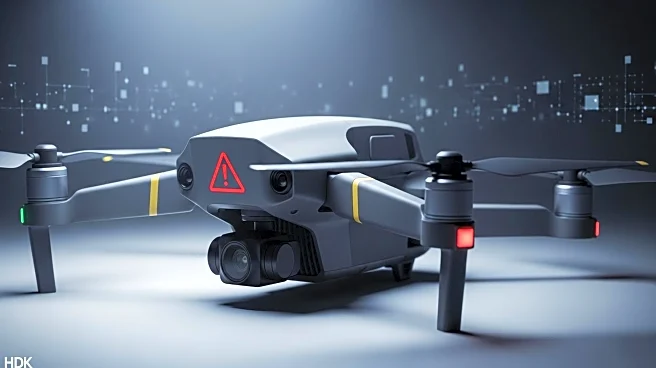What's Happening?
A U.S. District Judge has upheld the Pentagon's designation of DJI as a 'Chinese military company,' maintaining its position on the Defense Department's blacklist. This decision follows DJI's lawsuit against the U.S., challenging the Pentagon's classification, which the company argued was unlawful and caused significant business losses. The court found that DJI's status as a National Enterprise Technology Center, which provides subsidies and tax breaks from the Chinese government, along with its drones' dual-use capabilities, constituted receiving assistance from China's defense apparatus. As a result, DJI is barred from new U.S. federal contracts, and its products face import restrictions.
Why It's Important?
The ruling has significant implications for DJI, the world's largest drone manufacturer, and the broader U.S. drone market. DJI's exclusion from federal contracts and the stigma of being linked to China's military-industrial base could lead to substantial financial losses and impact its market dominance. The decision also highlights ongoing U.S.-China tech tensions, with concerns about national security risks associated with Chinese-made drones. This situation forces U.S. agencies and consumers to consider alternative drone suppliers, potentially reshaping the market landscape.
What's Next?
DJI plans to appeal the court's decision, but the ruling cements its exclusion from future U.S. federal programs starting in 2026. Federal agencies will need to find alternative drone suppliers, which may lead to increased costs and operational challenges. The U.S. drone industry may see a shift towards domestic manufacturers, though they currently lack the scale and capabilities of DJI. The legislative pressure to restrict Chinese-made drones could intensify, influencing future policy decisions.
Beyond the Headlines
The case underscores the complex interplay between technology, national security, and international relations. The reliance on Chinese-made drones raises ethical and security concerns, as Chinese laws could compel companies like DJI to support state intelligence efforts. This situation prompts a reevaluation of supply chain dependencies and the need for robust security measures in technology procurement.








